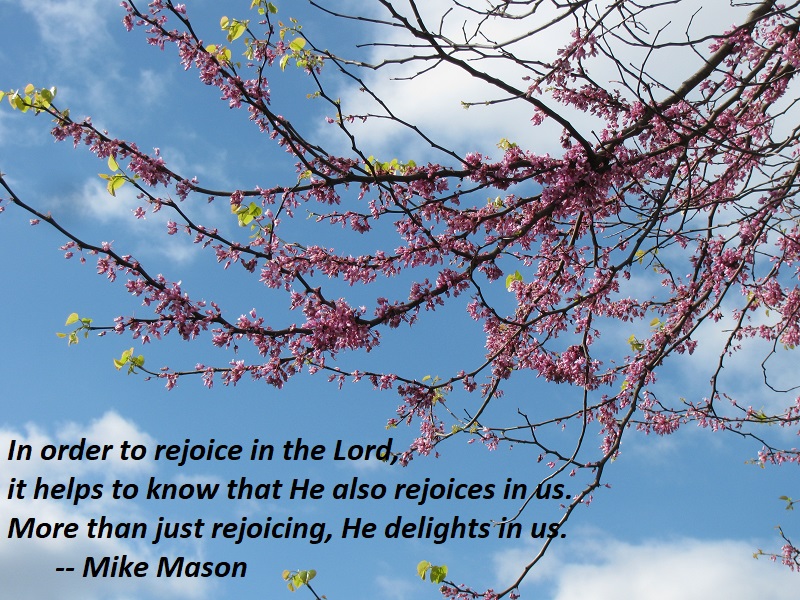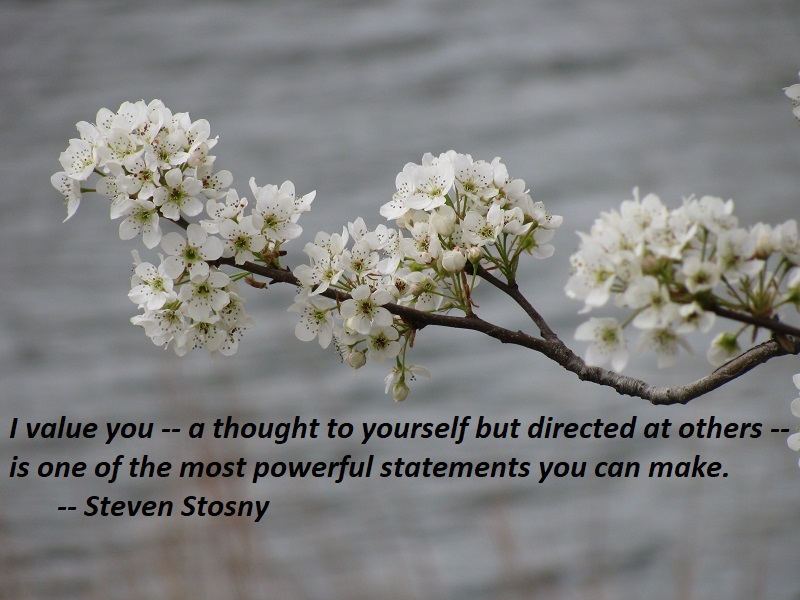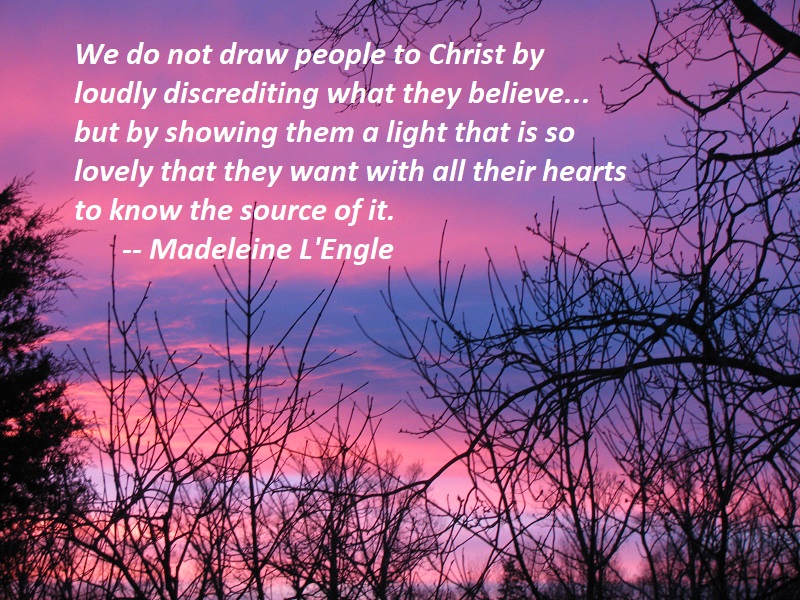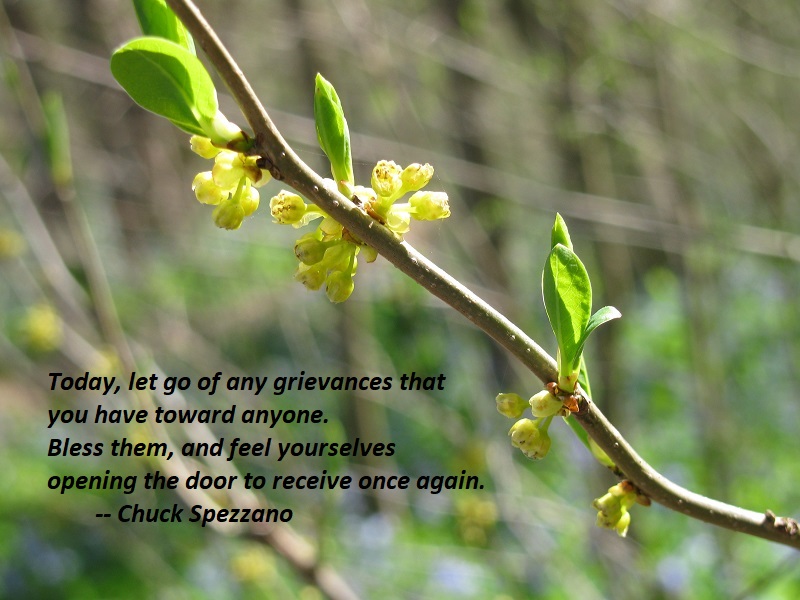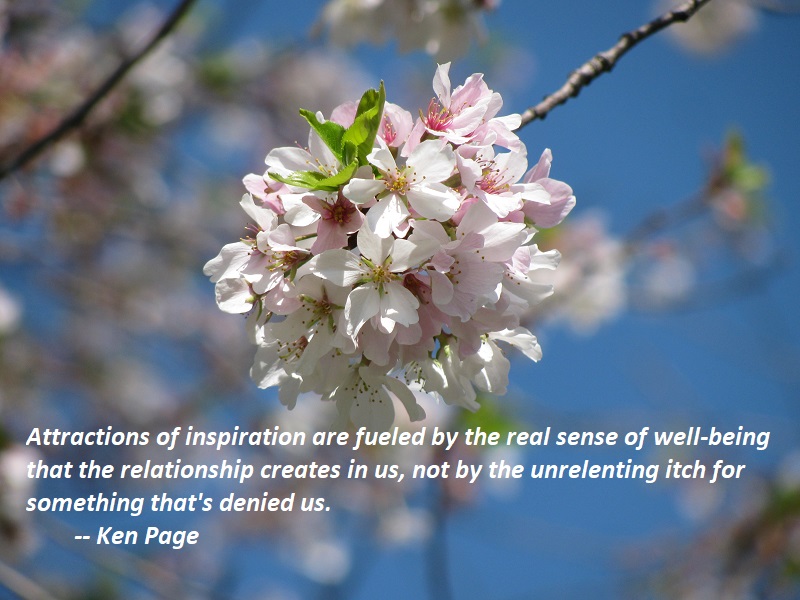Delight
It’s hard to like someone who doesn’t return the favor. In order to rejoice in the Lord, it helps to know that He also rejoices in us. More than just rejoicing, He delights in us. Delight is a good, honest word that circumvents any phony spiritualizing of the word rejoice. If we rejoice in the Lord for theological reasons rather than with frank warm-heartedness, we’ll presume that He’s the same way — rejoicing in His people out of covenantal obligation, while in His heart barely able to tolerate our waywardness. How absurd! When the Bible says “The Lord takes delight in his people,” we should picture a big, sloppy smile on God’s face and fireworks going off around His throne — all for you and me!
— Mike Mason, Champagne for the Soul, p. 61
[Photo: South Riding, Virginia, April 29, 2018]
